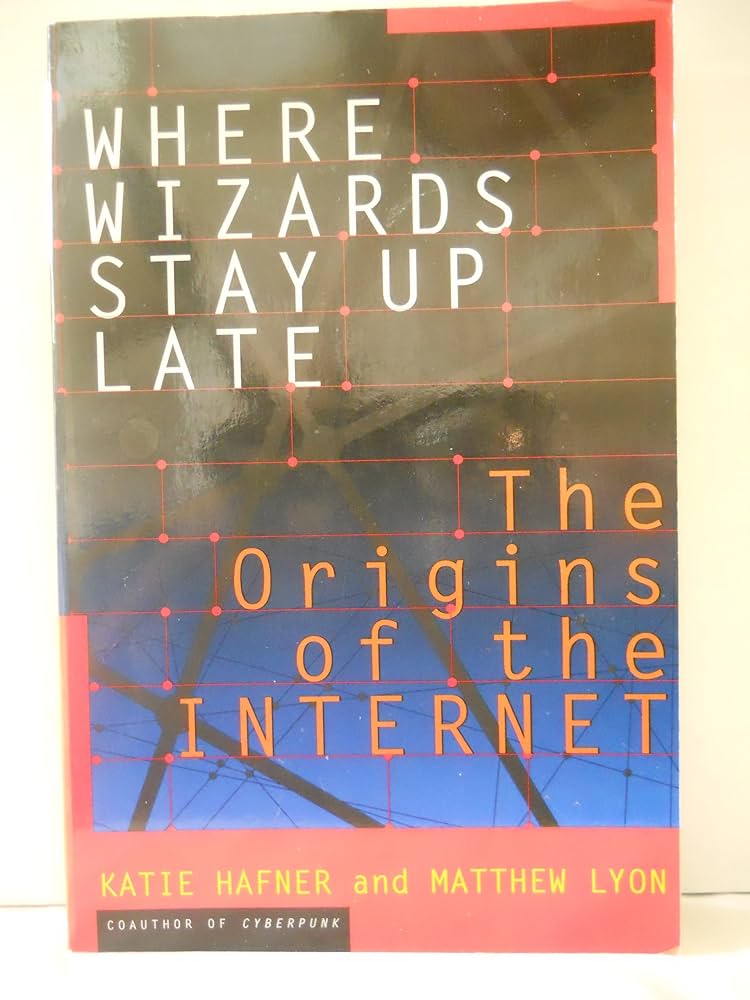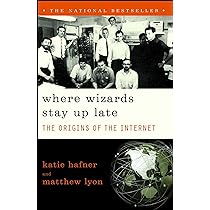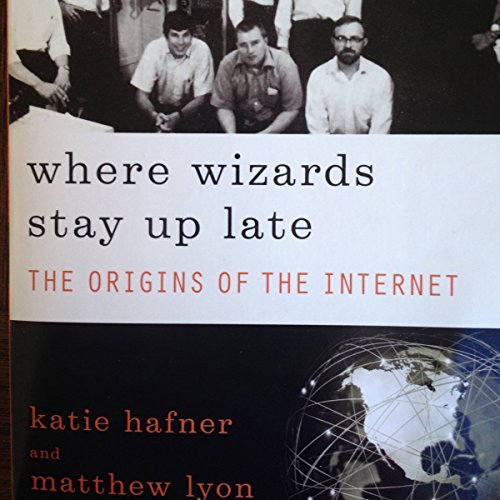Katie Hafner’s audiobook “Where Wizards Stay Up Late” explores the history of the internet’s creation. It dives into the groundbreaking work of early innovators.
“Where Wizards Stay Up Late” is a captivating audiobook by Katie Hafner. It delves into the origins of the internet, focusing on the visionaries behind its development. Hafner, with co-author Matthew Lyon, chronicles the efforts of engineers and scientists who turned a bold idea into a global phenomenon.
The narrative provides an engaging look at the challenges and triumphs of these digital pioneers. The book is both informative and entertaining, making it accessible to tech enthusiasts and casual listeners alike. Through vivid storytelling, Hafner brings to life the moments that shaped the digital age.
The Genesis Of The Internet
In the early days, scientists had big dreams. They wanted to connect computers together. This idea seemed crazy at first. Many thought it was impossible. Yet, these dreamers did not give up. They kept working hard. They believed in their vision.
People started to see the potential. These connections could change the world. They would make sharing information easy. The dream began to take shape. Slowly, the idea became real.
Many smart minds worked on this project. They were the pioneers of the internet. These people worked quietly. They did not seek fame. They just wanted to solve problems. They shared a common goal.
Some of these pioneers were scientists. Others were engineers. Each brought their own skills. Together, they made history. The internet we use today is their gift. Their hard work made it possible.
Katie Hafner’s Journey To The Story
Katie Hafner always loved stories about computers. She wanted to tell the world about them. She found inspiration in the early days of the internet. The book tells the story of how the internet began. Katie wanted everyone to know how it all started.
Katie Hafner spoke with many experts. These experts helped build the internet. She asked them lots of questions. Katie did a lot of research. She read many books and articles. She wanted her book to be very accurate. She made sure everything was true. Katie worked very hard to tell this important story.
Key Figures In The Development Of The Internet
Katie Hafner reveals the stories of unsung heroes. These individuals played key roles in the birth of the Internet. One such hero is Bob Taylor. He had the vision to connect different computers. Larry Roberts helped turn this vision into reality. He created the ARPANET. Paul Baran and Donald Davies developed packet switching. This technology is crucial for data transmission. Vinton Cerf and Bob Kahn designed TCP/IP protocols. These protocols are the backbone of the Internet. Tim Berners-Lee invented the World Wide Web. His invention made the Internet user-friendly. These figures are often overlooked. Yet, their contributions are immense.
J.C.R. Licklider envisioned a network of computers. His ideas inspired many others. Leonard Kleinrock developed the mathematical theory. This theory helped in network communication. Ray Tomlinson sent the first email. He used the @ symbol to separate user and machine. Douglas Engelbart invented the computer mouse. He also demonstrated hypertext and networked computers. Elizabeth Feinler created the first internet directories. Her work made it easier to find information online. Each contributed in unique ways. Their combined efforts led to the Internet we use today.

The Role Of Arpa
Katie Hafner’s “Where Wizards Stay Up Late” audiobook delves into ARPA’s pivotal role in creating the internet. The book highlights key figures and groundbreaking innovations.
Funding Innovation
ARPA played a crucial role in funding early internet research. They provided money to universities and private companies. This money helped create new technologies. Many of these innovations became the backbone of the internet. It was a time of great progress and discovery. The funding allowed scientists to take risks and explore new ideas.
From Arpa To Darpa
ARPA later became known as DARPA. The “D” stands for “Defense”. This change happened in 1972. The focus shifted slightly towards defense projects. Still, the mission remained the same. DARPA continued to fund groundbreaking research. This research led to many technological advancements. The organization remains a key player in tech innovation today.
Technological Breakthroughs
Packet switching changed how data travels. Instead of a single path, data takes many routes. This method makes the internet faster and more reliable. Each packet contains a part of the whole message. These packets find the best path to the destination. The invention was a big step for computer networks.
Protocols are rules for data exchange. They ensure that computers understand each other. TCP/IP became the standard protocol. It allows different networks to connect. This development made the internet possible. Without protocols, computers would not communicate well. They are like a common language for machines.

Challenges And Solutions
Early computer networks had many technical problems. Engineers faced issues with data transmission. Signals had to be strong and clear. Packets of data often got lost. Networks had to be reliable and fast. Solutions included better hardware and software. They also improved protocols for data exchange.
The development of computer networks affected politics and society. Governments worried about security and privacy. People feared losing jobs to automation. Engineers worked to address these fears. They promoted the benefits of computer networks. Education and communication improved. New industries and jobs emerged.
Legacy And Impact
The Internet has changed our lives. People connect with others easily. Information is now at our fingertips. Businesses have grown online. Shopping has become easier. Learning is now possible from anywhere. Communication is faster and simpler. Entertainment is more accessible. The Internet has made the world smaller. It has brought people closer together.
Future technology will keep evolving. Artificial Intelligence will play a big role. Virtual Reality will change how we experience things. 5G networks will make the Internet faster. Smart devices will become even smarter. Cybersecurity will be crucial. The Internet will continue to shape our future. New innovations will keep coming. Our lives will become more connected. The possibilities are endless.

Listening Experience
The narrative style of the audiobook is engaging. The delivery is clear and pleasant. Katie Hafner has a way of making complex topics easy. Each chapter flows smoothly into the next. The pace is perfect for absorbing information. Her voice is both warm and authoritative.
The audiobook keeps listeners hooked from start to finish. Vivid descriptions paint pictures in your mind. Personal anecdotes make the story relatable. Interviews with key figures add authenticity. Listening feels like a journey through time.
Conclusion
Katie Hafner’s “Where Wizards Stay Up Late” audiobook offers a deep dive into internet history. This captivating narrative highlights the pioneers’ relentless dedication. Perfect for tech enthusiasts and history buffs. Listen and discover the fascinating origins of our digital age.
Don’t miss this engaging journey back in time.



